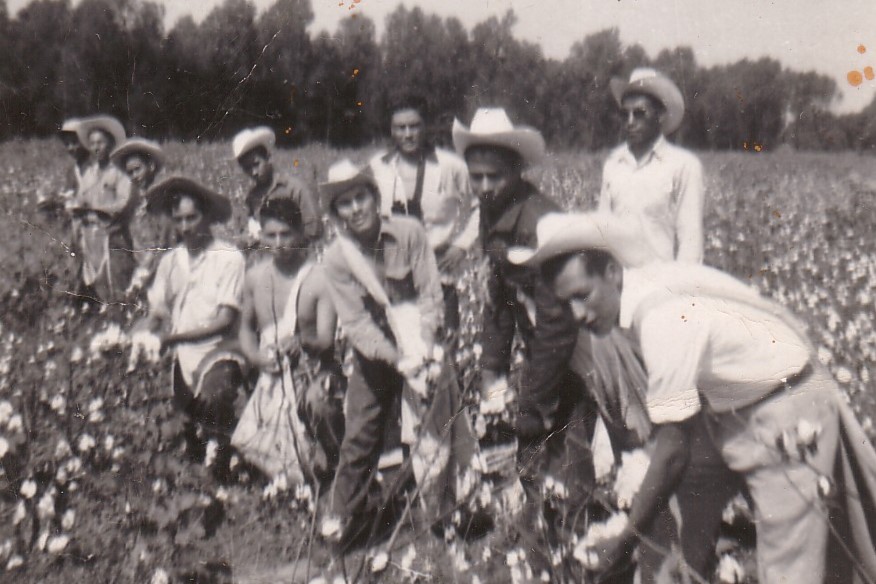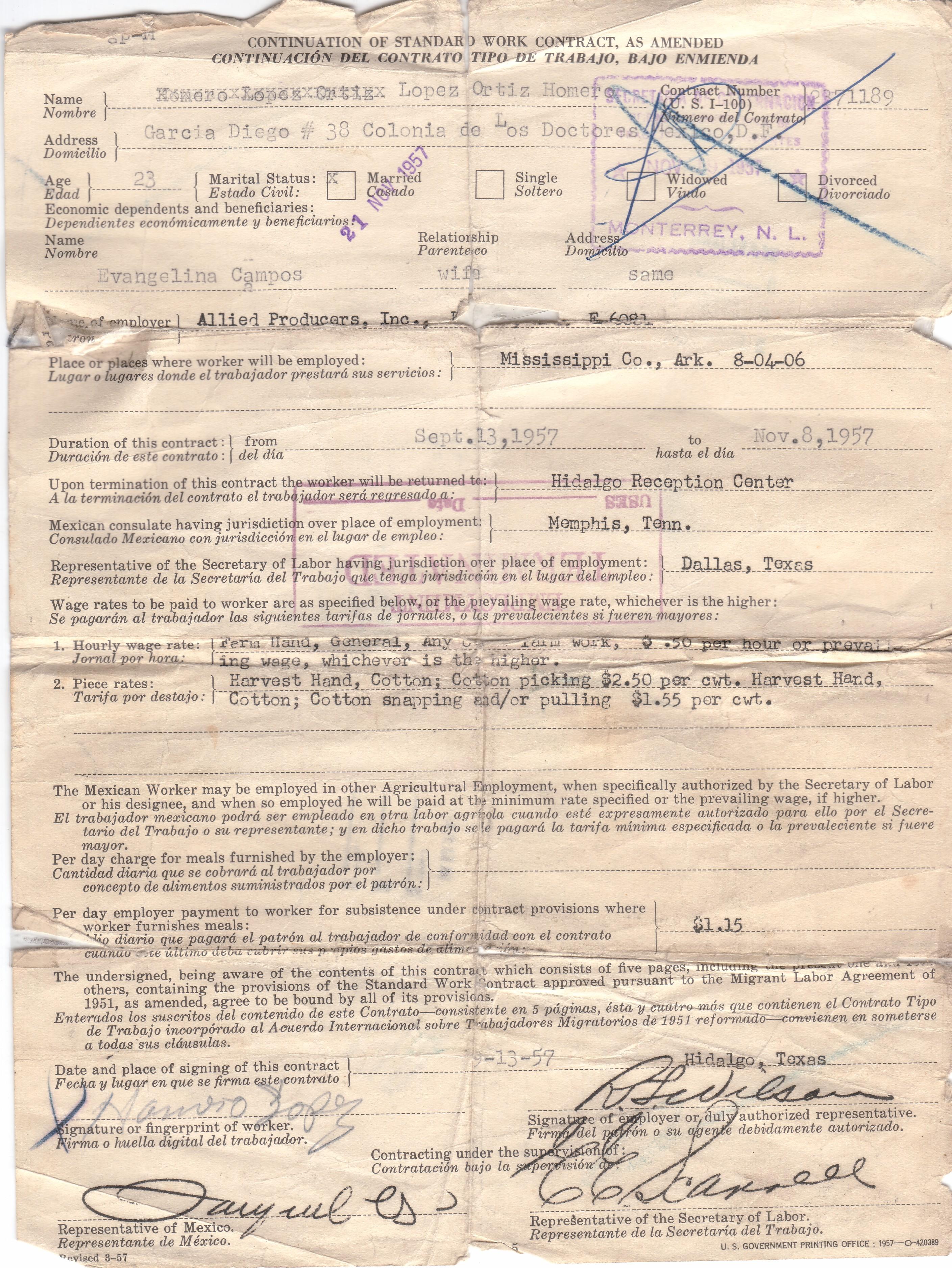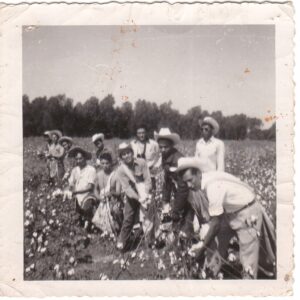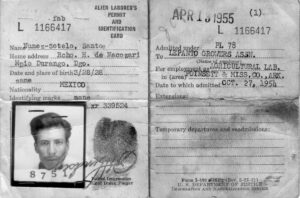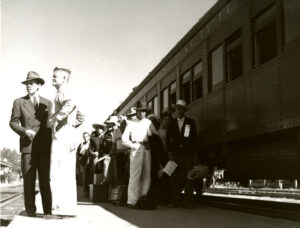How did the Bracero Program impact individuals and groups in the United States and Mexico?
Subject(s): Latinos, World History, US History, Arkansas History, and Civics & Government
Time Period(s): (1929-1945) Great Depression and World War II and (1945-Early 1970s) Postwar United States
Grade level(s): 6-8 and 9-12
Click here to download the PowerPoint
Supporting question(s):
What was the Bracero Program?
Why did it start?
What were the social, economic, and political impacts of the Bracero workers in Arkansas?
Source Set
- Continuation of standard work contract
- Picking cotton in Arkansas
- Identification Card for Santos Nunez Sotelo
- Oral History with Jonathan Abbott
- El Sol Newspaper
- Two men with a group of Mexican workers standing near Southern Pacific train, 1942
- The Catholic Times, October 30, 1959
Description
Bracero Work Contract for Homero Lopez Ortiz signed on September 13, 1957 for the Allied Producers Inc.
Description
Group of cotton pickers in Arkansas posing for photograph. HCC is pictured on the second row, second from left, no hat. OR eighth person from the left side of the photograph OR fourth person from right side of the photograph.
Description
Alien Laborer’s Permit and Identification Card for Santos Nunez Sotelo, from 1954. Association identified as Lepanto Growers Association, Arkansas
Additional resource(s):
Encyclopedia of Arkansas – Bracero Program
Arkansas Frameworks(s):
World History
H.6.WH.33 Assess the social, economic, political, and technological efforts to address global poverty, food and water access, healthcare, and equal human rights among the world’s peoples.
H.6.WH.35 Analyze ways historical contexts continue to shape people’s perspectives.
Arkansas History 7-8
H.1.ARH.11 Investigate social, economic, and political effects of World War II on various segments of the population in Arkansas, including soldiers off to war, war casualties, women at work, Japanese-American internment camps, victory, and war production plants.
C.1.ARH.6 Analyze the response of state government and the role of public policy on social concerns in Arkansas such as unemployment, education, poverty, immigration, and culture.
Civics
C.3.CIV.2 Compare the roles of citizen and non-citizen residents in the United States, including the protections of and limits on immigrant rights
U.S. History Since 1929
H.5.USH.8 Analyze the social, economic, and political effects of World War II on the American people: War efforts at home, Japanese-American internment camps and Korematsu vs. United States, Service member casualties, including prisoners of war, missing and wounded in action
